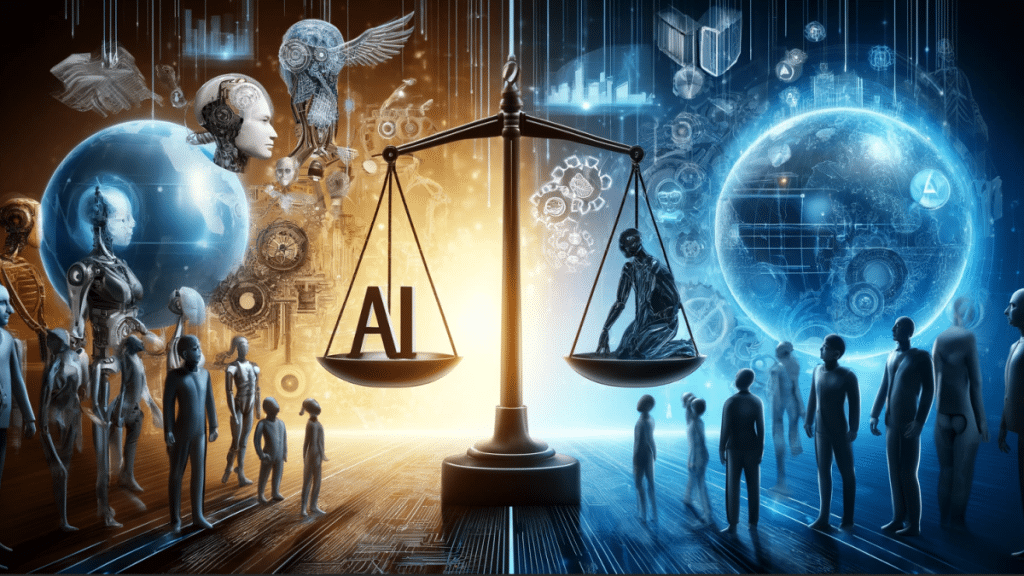Artificial Intelligence (AI) has become a transformative force across various industries, from healthcare and finance to entertainment and transportation. As AI continues to evolve, it brings with it immense potential for innovation and societal benefit. However, alongside these advancements come ethical considerations that must be addressed to ensure that AI is developed and deployed responsibly. This article explores the importance of balancing innovation with ethical responsibility in the realm of AI.
The Promise of AI Innovation
AI technologies and artificial intelligence app have the power to revolutionize numerous aspects of our lives. In healthcare, AI algorithms can analyze vast amounts of medical data to identify patterns and predict patient outcomes, leading to more accurate diagnoses and personalized treatment plans. In finance, AI-powered systems can detect fraudulent activities in real-time, safeguarding consumers and institutions alike. Autonomous vehicles, driven by AI, promise to reduce traffic accidents and improve transportation efficiency.
The Ethical Imperative
While the potential benefits of AI are undeniable, it is equally crucial to consider the ethical implications of its deployment. Ethical AI seeks to ensure that the development and use of AI technologies adhere to principles that promote fairness, transparency, and accountability. This involves addressing issues such as bias, privacy, and the impact on employment.
Addressing Bias in AI
One of the primary ethical concerns in AI is bias. AI systems learn from data, and if the data used to train these systems contain biases, the AI can perpetuate or even amplify these biases. This can lead to unfair treatment of individuals based on factors such as race, gender, or socioeconomic status. For example, biased AI algorithms in hiring processes could result in discriminatory practices, disadvantaging certain groups of applicants.
Ensuring Privacy and Data Security
AI systems often require access to large amounts of personal data to function effectively. This raises concerns about privacy and data security. It is vital to ensure that AI technologies are designed with robust privacy protections to safeguard individuals’ sensitive information. Organizations must adhere to data protection regulations and implement measures such as data anonymization and encryption to prevent unauthorized access.
The Impact on Employment
The rise of AI has sparked discussions about its impact on employment. While AI has the potential to automate certain tasks, leading to job displacement, it also creates new opportunities and roles. For instance, the development and maintenance of AI systems require skilled professionals in fields such as data science, machine learning, and cybersecurity.
It is essential to approach the integration of AI into the workforce with a focus on reskilling and upskilling employees. Providing training programs and educational resources can help workers adapt to the changing job landscape and take advantage of new opportunities created by AI.
The Role of Ethical Frameworks and Regulations
To balance innovation with ethical responsibility, the development and deployment of AI should be guided by ethical frameworks and regulations. Various organizations and governments have proposed guidelines to ensure the responsible use of AI. For example, the European Commission has outlined ethical principles for AI, including respect for human autonomy, prevention of harm, fairness, and explicability.
Promoting Collaboration and Stakeholder Engagement
Achieving ethical AI requires collaboration among various stakeholders, including researchers, policymakers, industry leaders, and the public. Engaging diverse perspectives ensures that ethical considerations are comprehensive and inclusive. Open dialogue and knowledge sharing can lead to the development of best practices and innovative solutions to address ethical challenges.
Conclusion
Balancing innovation with ethical responsibility is crucial in the development and deployment of AI technologies. By addressing issues such as bias, privacy, and employment, and by adhering to ethical frameworks and regulations, we can harness the transformative potential of AI while ensuring that it benefits society as a whole. Collaboration and stakeholder engagement play a vital role in promoting ethical AI, fostering a future where technological advancements align with our core values and principles. As we continue to innovate, let us do so with a steadfast commitment to ethical responsibility, paving the way for a brighter and more equitable future.
